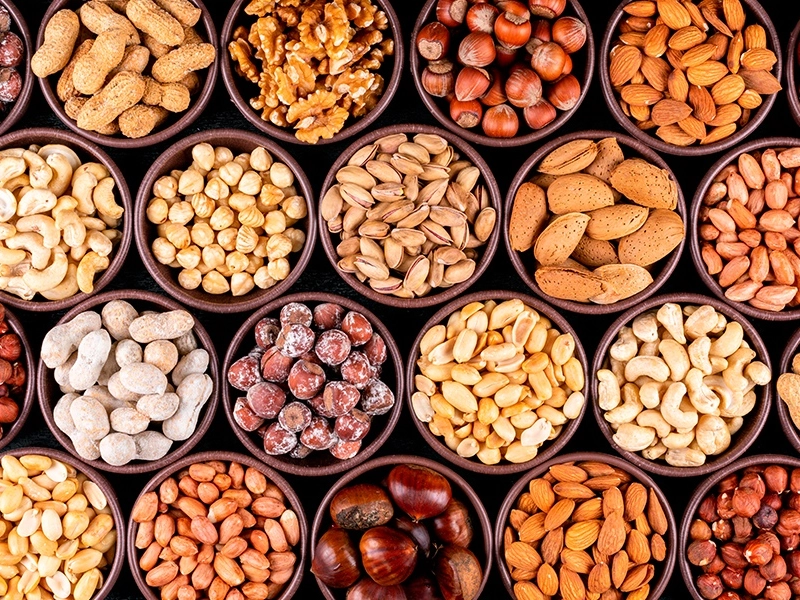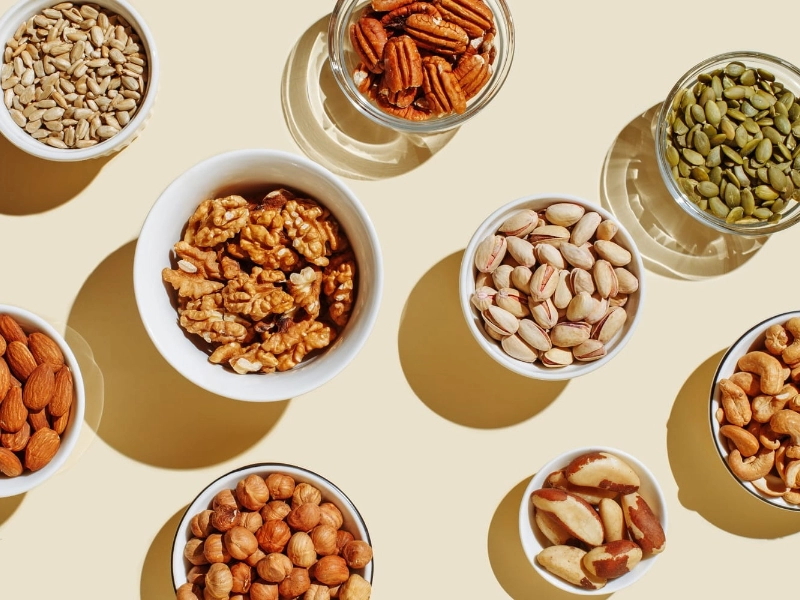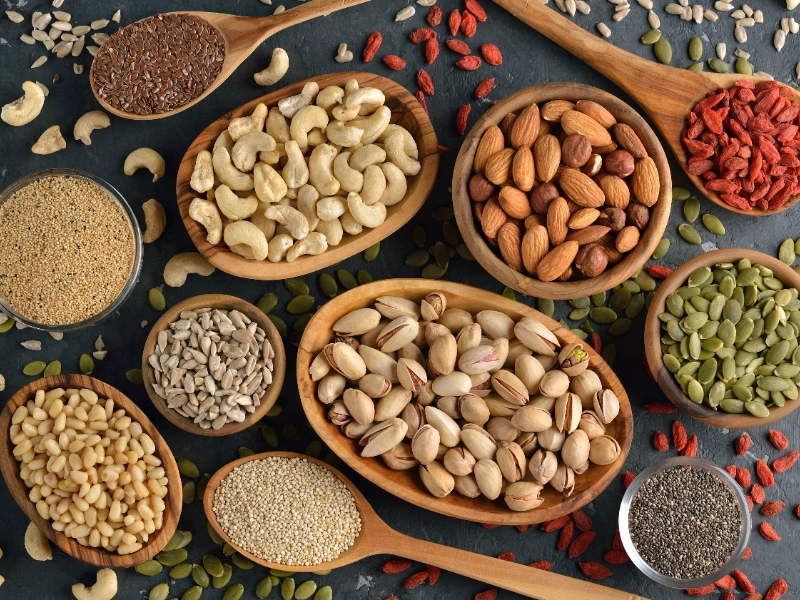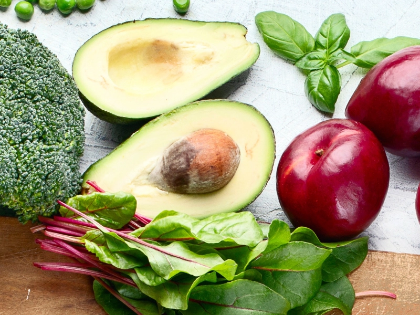The Role of Nuts in a Low-Carb or Keto Diet
1.Nutritional Examination of Nuts Given their outstanding nutritional profile, nuts are a mainstay of low-carb and ketogenic diets. Rich in good fats, mostly monounsaturated and polyunsaturated ones, they help to maintain energy levels and support heart health. Nutrients including minerals, vitamins, and protein abound in almonds as well. For those trying to cut back on carbohydrates yet still want a filling and nutritious snack, this combo is a great alternative. Common varieties such almonds, walnuts, pecans, and macadamia nuts each have special health advantages, thus they are flexible additions to any diet.
2.Low Carb Content Low carbohydrate content of nuts is one of the main reasons low-carb and ketogenic diets value them. Since most nuts have less carbohydrates than conventional snacks, people can keep within their usual carb intake. For instance, walnuts provide roughly 2 grammes of nett carbohydrates while a one-ounce serving of almonds has about 2.5 grammes. This low carb count enables people to stay in ketosis, a metabolic condition when the body burns fat rather than carbohydrates. Including nuts in meals and snacks might help quell appetites without compromising dietary goals.

 5.Dense Nutrients Nutrient-dense foods—that is, those with a high concentration of vital nutrients relative to their calorie count—are nuts. Among vitamins, they abound in vitamin E, B vitamins, and minerals including magnesium, zinc, and potassium. Among the several body processes, these nutrients are absolutely essential for immune support, energy generation, and muscular action. Adding nuts to your low-carb or ketogenic diet will increase your total nutrient intake and help you to control your carbohydrate levels.
6.Adaptability in Snacking and Cooking Extremely flexible, nuts can be included into many meals and snacks. Raw, roasted, or nut butter; they are great complements to salads, smoothies, and baked products. Nut toppings for yoghurt or oats also offer crunch and taste without appreciably raising the carbohydrate count. Their flexibility makes it simpler to follow a low-carb or ketogenic diet while nevertheless enjoying a wide variety of meals by allowing imaginative meal planning.
5.Dense Nutrients Nutrient-dense foods—that is, those with a high concentration of vital nutrients relative to their calorie count—are nuts. Among vitamins, they abound in vitamin E, B vitamins, and minerals including magnesium, zinc, and potassium. Among the several body processes, these nutrients are absolutely essential for immune support, energy generation, and muscular action. Adding nuts to your low-carb or ketogenic diet will increase your total nutrient intake and help you to control your carbohydrate levels.
6.Adaptability in Snacking and Cooking Extremely flexible, nuts can be included into many meals and snacks. Raw, roasted, or nut butter; they are great complements to salads, smoothies, and baked products. Nut toppings for yoghurt or oats also offer crunch and taste without appreciably raising the carbohydrate count. Their flexibility makes it simpler to follow a low-carb or ketogenic diet while nevertheless enjoying a wide variety of meals by allowing imaginative meal planning.
 7.Future Medical Advantages Including nuts into a low-carb or ketogenic diet can provide various health advantages beyond only weight control. Regular nut intake has been linked in studies to lessen inflammation, improve cholesterol, and perhaps lower the risk of heart disease. Nutrients such polyphenols and vitamin E, among other antioxidants, help to provide these protective qualities. Moreover, several studies imply that nuts could boost brain health and enhance cognitive ability, therefore they are a great complement to every diet.
8.Selecting the correct nuts Not all nuts are made equally, hence some might be better fit for a low-carb or ketogenic diet than others. Although most nuts have low carbohydrates, other types—such as cashews and pistachios—have more carbs. When choosing nuts, take their carbohydrate count into account and pick ones that fit your nutritional objectives. Because of their lower carbohydrate counts and greater fat content, almonds, walnuts, pecans, and macadamia nuts are great low-carb, ketogenic foods.
7.Future Medical Advantages Including nuts into a low-carb or ketogenic diet can provide various health advantages beyond only weight control. Regular nut intake has been linked in studies to lessen inflammation, improve cholesterol, and perhaps lower the risk of heart disease. Nutrients such polyphenols and vitamin E, among other antioxidants, help to provide these protective qualities. Moreover, several studies imply that nuts could boost brain health and enhance cognitive ability, therefore they are a great complement to every diet.
8.Selecting the correct nuts Not all nuts are made equally, hence some might be better fit for a low-carb or ketogenic diet than others. Although most nuts have low carbohydrates, other types—such as cashews and pistachios—have more carbs. When choosing nuts, take their carbohydrate count into account and pick ones that fit your nutritional objectives. Because of their lower carbohydrate counts and greater fat content, almonds, walnuts, pecans, and macadamia nuts are great low-carb, ketogenic foods.
 9.Summarise reduced-carb and ketogenic diets heavily rely on nuts since they provide a great range of nutrients and help to maintain reduced carbohydrate intake. Their good fat count improves weight control, increases satiety, and offers energy. For individuals following a low-carb or ketogenic diet, nuts are a great choice since their adaptability and nutrient density allow them to be simply included into meals and snacks. Selecting the correct kinds of nuts and savouring them in moderation will improve your diet and assist your general wellness.
9.Summarise reduced-carb and ketogenic diets heavily rely on nuts since they provide a great range of nutrients and help to maintain reduced carbohydrate intake. Their good fat count improves weight control, increases satiety, and offers energy. For individuals following a low-carb or ketogenic diet, nuts are a great choice since their adaptability and nutrient density allow them to be simply included into meals and snacks. Selecting the correct kinds of nuts and savouring them in moderation will improve your diet and assist your general wellness.








